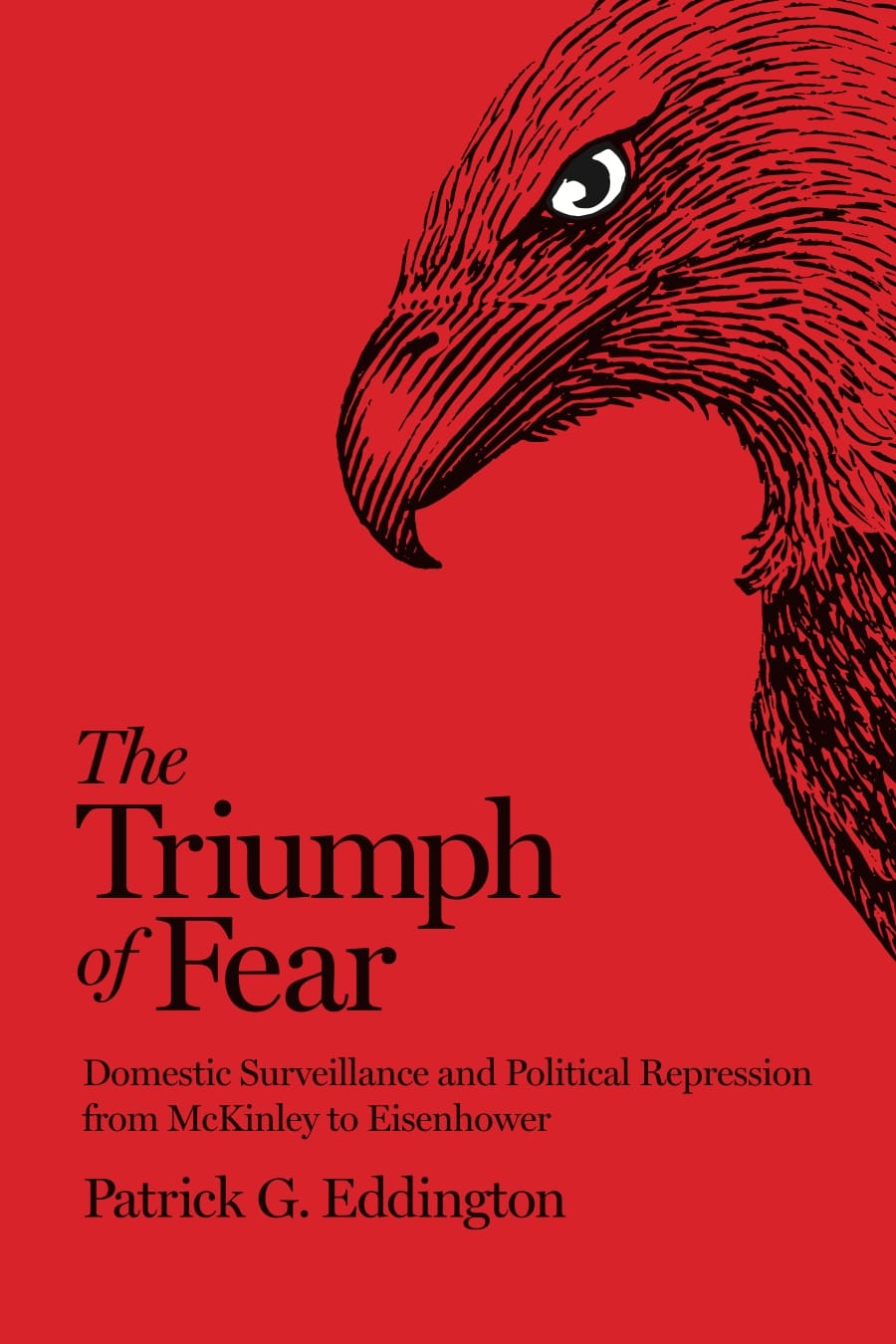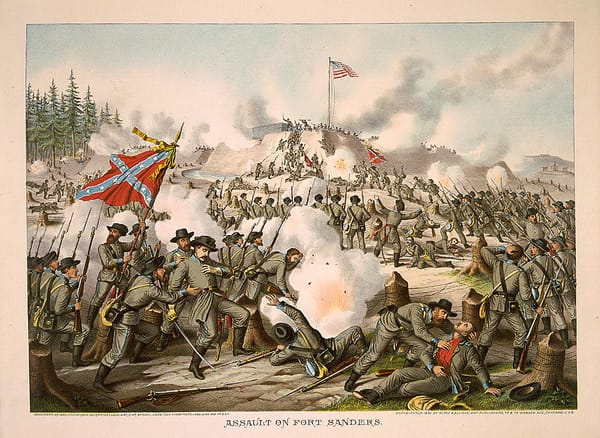The Triumph of Fear: Past As Prologue
If all of this sounds eerily familiar and frightening, it's because Trump is clearly--and enthusiastically--blazing his own infamous trail of authoritarianism that already matches, and in some cases is poised to surpass, the outrageous conduct of those who came before him.

With each passing week, Trump's attacks on freedom of speech, association, legal representation, academia, libraries, museums, science and so much more are guaranteeing that he'll go down in history as America's first unmistakenly authoritarian chief executive...with help from a lapdog GOP controlled Congress and largely powerless federal judiciary.
John Adams and the Federalists gave us, among other things, the Alien Enemies Act, the odious law Trump is now using to attempt mass deportations of people, at this point in a completely due process free fashion.
Andrew Jackson defied the Supreme Court to carry out his mass expulsion and relocation of native peoples to areas west of the Mississippi River.
Abraham Lincoln suspended habeas corpus during the Civil War.
And as I note at length in my new book, The Triumph of Fear, Theodore Roosevelt, Woodrow Wilson, Franklin Roosevelt, Harry Truman, and Dwight Eisenhower each committed multiple sins against the Constitution, and the people it was designed to protect.
Invariably invoking "national security" or the need to combat "internal subversion," these men used alleged threats to public safety as a justification for suppressing speech and prosecuting offenders under the Espionage Act (Wilson), sending to concentration camps innocent and loyal American citizens of Japanese heritage after the Pearl Harbor attack (FDR), targeting federal employees with alleged or actual left-leaning political beliefs for termination (Truman and Eisenhower), and even signing legislation banning a disfavored political party (Eisenhower). And in each case, these presidents found support--often bipartisan in nature--from Congress and the courts.
If all of this sounds eerily familiar and frightening, it's because Trump is clearly--and enthusiastically--blazing his own infamous trail of authoritarianism that already matches, and in some cases is poised to surpass, the outrageous conduct of those who came before him.
In its very recent review of The Triumph of Fear, the Project on Privacy and Surveillance Accountability noted that
If you want to know how we got here, Triumph of Fear is an entertaining read and an essential one. It also casts a mirror on the current state of surveillance and speech. Today, as in the Wilson era, we are challenged to separate explicit calls from violence from controversial speech. Today, as then, the government warrantlessly inspects Americans’ movements, associations, and statements, but with infinitely more precision and more data than could be reaped just by reading telegrams.
The Triumph of Fear has been endorsed by people who've led Congressional committees:
Patrick Eddington offers a historical page-turner that traces the deep roots of government surveillance in American life. He shows how the early 20th century’s cauldron of anarchism and violence – including a presidential assassination, terrorism, and bombings – gave birth to a fear-based mentality to justify political surveillance. From prosecution of Americans making “disloyal utterances” in the Wilson era, to the interference of the Bureau of Investigation in the 1924 presidential election, to the FBI’s early persecution of Martin Luther King Jr., Eddington explains how the surveillance state grew and why it lives on today.
--Bob Goodlatte, former Chairman of the House Judiciary Committee, Senior Policy Advisor to the Project for Privacy and Surveillance Accountability
By prominent academics:
"Patrick Eddington has compiled a civil liberties 'tour de force' illuminating the harrowing psychosis at the heart of the U.S. surveillance state.
"Eddington's in-depth archival research, and decades of FOIA interventions, provide an incredibly robust documentation of the efforts of presidential administrations – Democrat and Republican alike – to infiltrate and disrupt civil society.
"Eddington's wealth of primary sourcing highlights countless cases of verified judicial, legislative, and executive branch negligence, and humanizes the myriad harms caused by the illegal surveillance of the American people.
"Laying bare 75 years of abuse of power, The Triumph of Fear is a precursor and cautionary tale – foreshadowing the rampant surveillance of contemporary presidential administrations and underscoring the sordid history of politicians wantonly ignoring the U.S. Constitution, violating their oaths of office, and eroding the very foundations of the country they purport to serve."
--Professor Sascha Meinrath, Palmer Chair in Telecommunications, Penn State University
By former senior Justice Department officials:
The Triumph of Fear demonstrates that widespread U.S. government surveillance, and the government’s attendant subversion of domestic political activities, have deeper and much earlier roots than has generally been understood. Patrick Eddington’s outstanding and revelatory book brings alive the patterns of fear that sparked the early creation of the U.S. surveillance state, the surprisingly wide array of institutions that supported it, and the harm it wreaked on so many.
--Jack Goldsmith, Learned Hand Professor of Law, Harvard Law School
By former FBI undercover agents:
Pat Eddington’s Triumph of Fear challenges our concept of the United States of America as the land of the free and the home of the brave. His deep research and focus on primary sources reveal that for more than a hundred years, unreasonable fears drove presidents of both parties to unleash secret surveillance operations by an assortment of law enforcement, military, and intelligence agencies against their political opponents, government dissidents, journalists, and anyone they just didn’t like – too often with the cooperation of Congress and the courts. This history is essential to understanding the nature of domestic surveillance operations today, and the need to tightly control them.
—Mike German, former FBI Special Agent and author of Disrupt, Discredit, and Divide: How the New FBI Damages Democracy.
By progressive political activists:
Triumph of Fear is a captivating narrative that explores the history and depth of government surveillance and repression and sharply elucidates the damage done to individuals, civil society, and our democracy. Eddington’s prose is elegant and engaging, his research exhaustive, and his analysis spot on. It’s critical reading for anyone who cares about our democracy and their own constitutional rights.
--Sue Udry, Executive Director (she/her), Defending Rights and Dissent
And by classical liberals:
The Triumph of Fear is simultaneously enriching and anxiety inducing, fascinating and terrifying. Eddington tells well—with authority, insight, passion, and lived-experience—a story as relevant and pressing now as it ever has been, and brings the rigor and urgency needed to get across just how deeply Americans should care about how the state uses its power to see as a means to oppress. Much of what I learned from the book it would be more comfortable not to know, but Eddington makes a strong case that knowing these uncomfortable truths about our government’s abuse of surveillance in the service of political repression is necessary to prevent from happening, again and again, the damaging activities he so thoroughly chronicles. Eddington’s book is a triumph that, one hopes, will play an important role in undoing that of its title.
—Aaron Ross Powell, Senior Director of Programs, Institute for Humane Studies (for identification purposes only) and founder, Reimagining Liberty.
You can exercise a "try before you buy" option for the book by reading the last chapter, posted online here, and if you missed the livestream of the April 3 book launch event you can watch the video here.
Available from Amazon, Barnes & Noble, and Georgetown University Press. I hope you'll pick up a copy, and if you, thanks in advance.
Thanks for reading the Sentinel. If you're not a subscriber, please consider becoming one today.





